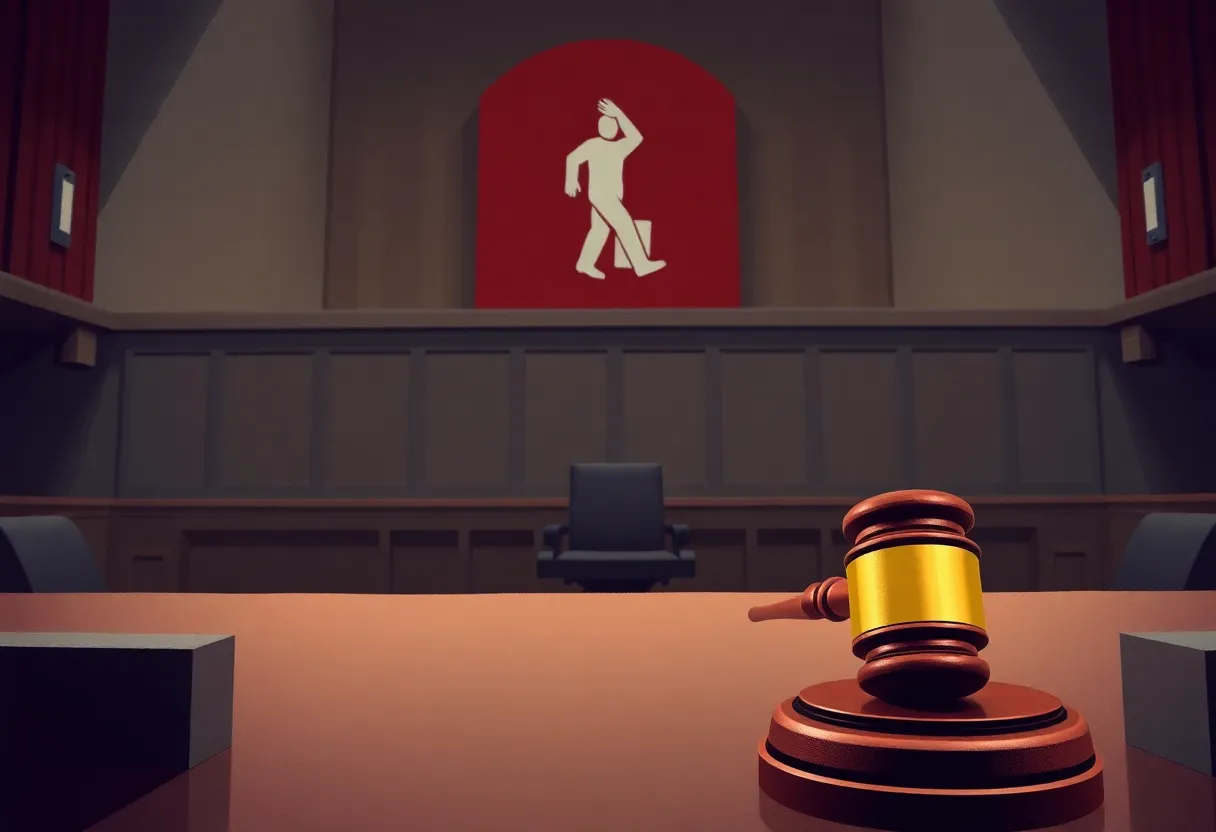Albuquerque, NM, October 21, 2025
In a controversial ruling, a judge has decided that the sale proceeds from former judge Carl Parker’s home office will not benefit victims of the Bernalillo County DWI dismissal scandal. This decision comes amid ongoing asset liquidation efforts to cover fines due to Parker’s role in dismissing DUI cases for bribes. Victims’ advocates have expressed profound disappointment, stating that these funds could have provided significant support to families impacted by the scandal, which has undermined public trust in the local justice system.
Judge Rules Against Victims in DWI Dismissal Scandal Over Home Office Funds
Albuquerque, NM – In a decision that has sparked backlash from victims’ groups, a judge ruled today that individuals harmed by the Bernalillo County DWI dismissal scandal will not receive any portion of the proceeds from the sale of former judge Carl Parker’s home office. This ruling comes as part of ongoing efforts to liquidate Parker’s assets to cover fines imposed due to his role in a corruption scheme that led to the improper dismissal of hundreds of DUI cases in exchange for bribes.
The scandal, which first surfaced several years ago, involved Parker and other court officials allegedly accepting payments to dismiss driving while intoxicated charges, leaving victims of related accidents without justice or closure. Today’s court decision specifically excludes the home office property from distribution to affected families, limiting their potential restitution despite the office’s connection to Parker’s judicial misconduct. Victims’ advocates have voiced strong disappointment, noting that these funds could have provided meaningful support for those whose lives were upended by the dismissed cases.
Details of the Ruling and Its Implications
The ruling was issued in a Bernalillo County courtroom, focusing on the interpretation of asset forfeiture laws in corruption cases. While Parker’s broader assets, including real estate and financial holdings, are being sold off to satisfy court-mandated fines, the judge determined that the home office does not qualify for direct victim compensation. This distinction has raised questions about the fairness of how proceeds are allocated, with critics arguing it undermines efforts to make victims whole.
Affected individuals include family members of those killed or injured in alcohol-related incidents where DWI charges were dropped due to the bribery scheme. The scandal affected an estimated hundreds of cases over several years, eroding public trust in the local justice system. Although some restitution has been pursued through civil actions, this latest decision represents a setback, as the home office sale was seen as a tangible opportunity for partial recovery.
Background on the DWI Dismissal Scandal
The Bernalillo County DWI dismissal scandal emerged as one of the most significant corruption cases in New Mexico’s recent history. Investigations revealed that Carl Parker, a former judge, along with associates, facilitated the dismissal of DUI cases for improper payments, often ranging from small bribes to larger sums. This practice not only allowed impaired drivers to evade penalties but also prevented victims from seeking accountability through the courts.
Following the exposure of the scheme, Parker faced charges of bribery, official misconduct, and related offenses. He was removed from the bench and agreed to asset liquidation as part of his plea deal. The total value of assets involved remains under review, but the fines imposed on Parker are substantial, intended to penalize his actions and deter similar corruption. However, the exclusion of the home office from victim funds highlights ongoing challenges in balancing punishment for perpetrators with support for those harmed.
Legal experts have pointed out that such rulings often hinge on precise statutory language, which in this case prioritized fine payments over direct restitution. The decision may prompt appeals from victims’ representatives, who have long advocated for stronger mechanisms to compensate those impacted by judicial failures. In the broader context, the scandal prompted reforms in New Mexico’s court oversight, including enhanced monitoring of DWI case handling and stricter ethics training for judges.
As the liquidation process continues, attention turns to how remaining assets will be handled. Community groups in Albuquerque have called for legislative changes to ensure future scandals prioritize victim recovery. The ruling serves as a reminder of the long-lasting ripple effects of corruption in the justice system, particularly for everyday people caught in its wake.
Broader Impact on the Community
Beyond the immediate financial implications, today’s decision underscores persistent issues with accountability in public office. In Albuquerque, where road safety remains a top concern, the scandal has fueled discussions on preventing DWI leniency. Local organizations dedicated to victims’ rights continue to push for policy adjustments, emphasizing the human cost of dismissed cases—lost lives, lifelong injuries, and eroded faith in institutions.
While the ruling closes one chapter, it opens debates on restitution frameworks. Affected parties may explore alternative legal avenues, but for now, the focus remains on the court’s directive to direct home office proceeds solely toward fines. This development keeps the spotlight on the need for transparent and equitable justice in Bernalillo County.


